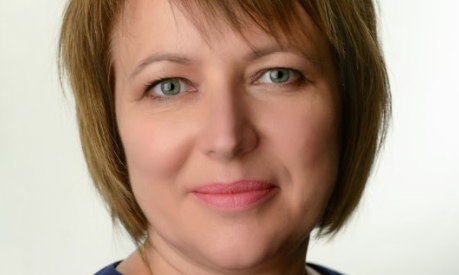A new balance

Do you remember when “disruption” was a bad thing? For some time now, the word has taken on far more progressive associations in business. Digital disruption; disruptive innovation; disruptive thinking; disruptive strategies…the list goes on.
And so, when the most disruptive of all events interrupts our everyday lives, now is a good time to ask how the consequent shake-up has quickly affected the funeral sector. Covid-19 has upset end-of-life traditions across the globe. It has made us all rethink what it means to mourn; to say goodbye. It is funeral directors who share that burden with us.
Here in the UK, this disruption has caused significant hardship for funeral directors and the families they serve. More basic funerals have limited the support funeral directors can give to bereaved families and restrictions placed on mourners have increased hardship at an already difficult time.
Within their businesses, funeral directors have been required to manage increased absence levels, invest in new technologies and equipment and interpret and communicate public health guidance to colleagues and communities, protecting staff and saving lives.
As is the case in many industries, close attention is being paid to how the sector is adapting to the challenges that coronavirus has introduced.
In this time, funeral directors have been characterised by both their humanity and their ingenuity. Balancing serving communities and maintaining people’s dignity with enforced pragmatic business decisions is a challenge. Behind the scenes we all see in the media, there is digital innovation, determination and immense displays of flexibility all across the country.
Even a few short months ago, if someone were to ask me whether I thought funeral directors would be routinely asked to livestream funerals as part of a normal service, I would have been doubtful. Such a substantive shift in consumer demand for that level of connectivity felt unlikely to become the norm for many years. Yet here we are, at a point where opportunities for remote remembrance have become crucial to many bereaved families and individuals, making livestreaming significantly more prevalent than it ever was before.
The changes we are seeing must surely stand the test of time. Digital transformation was kick started in March with the introduction of the Coronavirus Act 2020, which has enabled funeral directors in England and Wales to email forms and verify deaths via video link.
Funeral directors or family members in Scotland can also now register deaths via email or phone following guidance from the Scottish Government and National Records of Scotland.
This move was made for the practicalities of minimising person-to-person contact, but in the longer term it removes the potential for delays that families previously encountered at a very difficult time. Again, this is another change that we may have expected in the future, not right now.
So while this pandemic has been trying for us all, it has demanded some new, positive efficiencies. I would hope that some of these efficiencies, and a continued focus on digital service provision, remain embedded in the industry as it begins to slowly settle into its “new normal”.
This rapid shift toward more digital experiences should also accelerate changes we already anticipated seeing amongst consumers. We have for some time expected to see access to funeral services move online, and for digital channels to play an increasing role even at the point of immediate need.
Digital adoption is soaring upwards as the country is forced online. For many of us, the web has been a preferred way of communicating, researching and purchasing goods for some time. But digital technology has become a necessity for our customers in many more aspects of their lives during the pandemic, including late and reluctant adopters and, of course, older, more traditional audiences.
In many ways, this shift might create uncertainty. Funeral directors have spent decades creating safe spaces in the heart of communities. There, I said it: safe spaces. The changes we are seeing around us make those spaces different. They make the service different. They make the process different.
Digitisation also makes the sector more transparent. We know that forthcoming regulation will aim for greater transparency. Digital processes offer total transparency. Whatever the future holds, funeral directors that bridge the gap between the physical or traditional and the virtual or digital experience will thrive.
That is not to say the funeral is going to change forever. I imagine much will revert to pre-coronavirus norms once restrictions are lifted. But one thing is clear: digitisation is here to stay. I can only applaud the way our sector has responded to change in such a rapid and effective way, and above all else, with compassion and grace and with their community at the heart.

